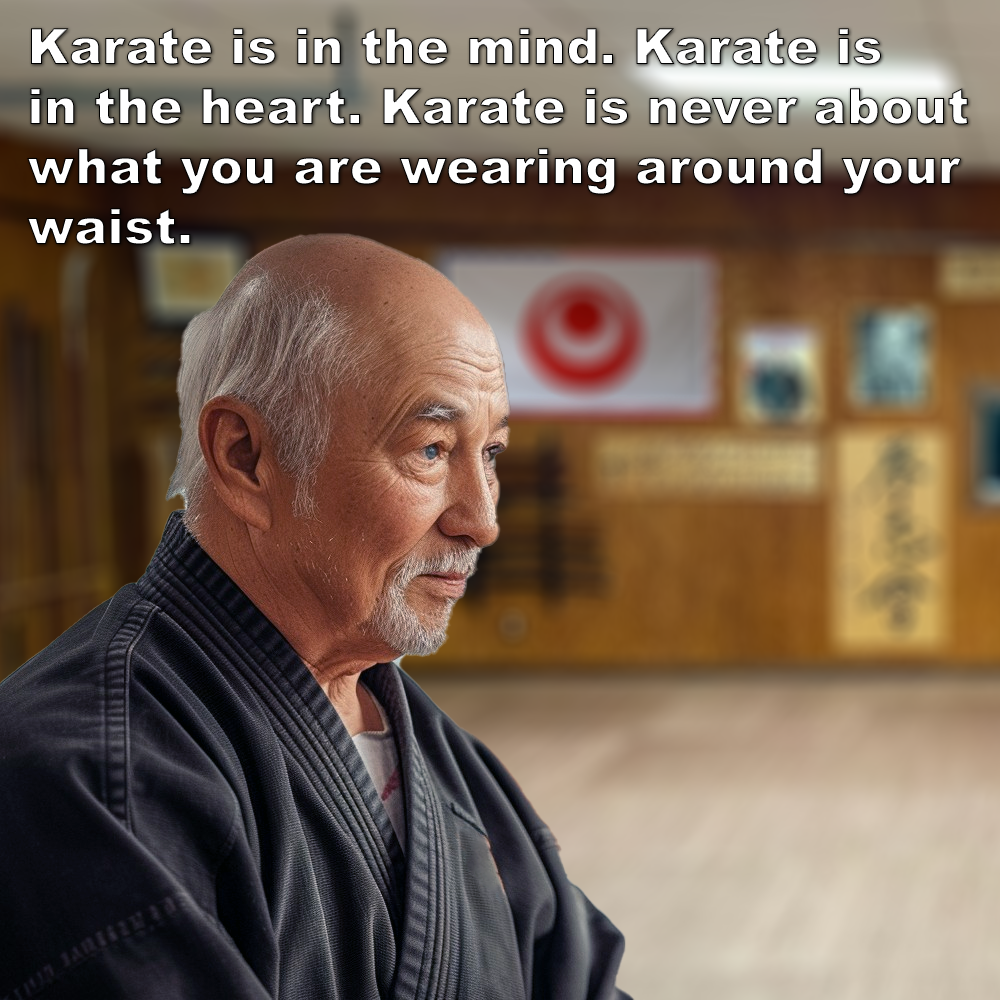
(Approx 2 minute 25 second read)
A few months back, a Nidan we knew contacted us after his instructor passed away and asked if we could grade him to Sandan.
.
From the outset, I had reservations. Even though he was part of our US association through his instructor, I didn’t know this person, he had never joined us for a session, and I had never seen him train.
.
To give him the benefit of the doubt, we agreed to meet, but as he lived some distance away, we received videos of him teaching and training in the meantime.
.
Oh dear, not a good start – the performances were subpar and well below any standard that I would have required for a dan grade.
.
However, I try not to turn anyone away, so I offered to teach him and bring him up to our standards. You can guess what happened next? He refused.
.
Instead, he decided to join another association and grade with them. No problem – that’s his prerogative.
.
People need to understand that any grade is not an entitlement. It’s awarded because your sensei believes you can represent their art, and the dojo or association to a definable standard.
.
Joining a new dojo or group, learning their system, training hard over an extended period, and legitimately grading is one thing. Expecting an automatic right to a grading? I don’t believe any reputable instructor would entertain. Your prior training will help, but you still have to earn it.
.
If you didn’t work for it, then it is meaningless. And you KNOW that! The bottom line is that you can’t demand or expect a grade just because of your entitled charisma.
.
A Nidan who is trying to reach Sandan should be showing some humility. He should not only be proficient in the basics but should have internalized them – meaning he can perform techniques spontaneously, with speed, power, and mobility. Not moving like a sack of potatoes. (Yes, I know, I should know better than to criticize, but a little humor never hurt anyone!)
.
By the time you’re aiming for Sandan, you should know better. You are expected to have a clear understanding of the underlying principles and be well on your way to connecting the dots.
.
It’s not just about performing another kata. At this level, students are required to demonstrate the application of their techniques in varied circumstances and conditions.
.
We are all different – I get that – and some practitioners are able to instruct well before this grade. But at this level, you’re often seen as an instructor proper, with a good knowledge and understanding, able to answer students’ questions extensively and in detail.
.
Some people need to roll up their sleeves and put in the effort. There are no shortcuts. Everyone has to practice diligently and consistently.
.
You need to be able to demonstrate that you’ve reached the required standard by training with a qualified instructor, learning from them, and accepting their corrections and guidance. It’s not just about showing up, doing some sparring and walking through your techniques, drills, or kata.
.
There isn’t an automatic promotion, you should be working for it, and if you’re ready, you may be promoted. When to grade is not up to you.
.
It goes without saying that good skills should be present – knowing less than what is required for the grade you already hold isn’t going to fly. At this level, it’s not just about being able to perform the technique – you need to understand what’s behind it.
.
So, show some respect. Make yourself proud of who you are. Your students sometimes have great respect for their instructor – make sure you deserve it.
.
.
Written by Adam Carter – Shuri Dojo.
